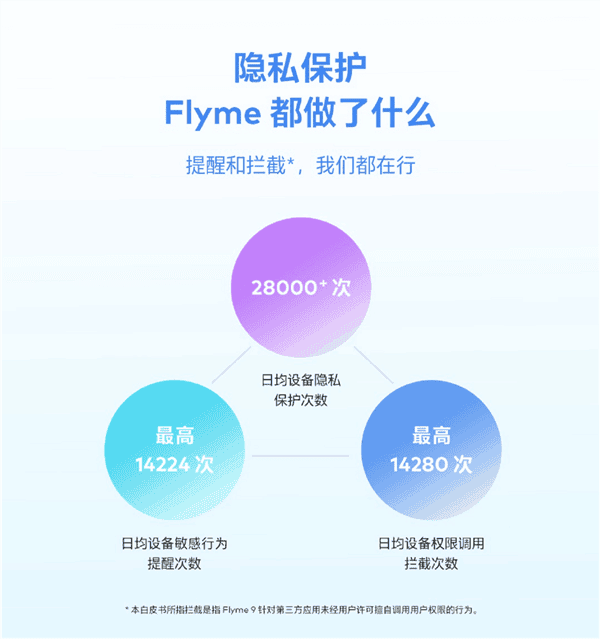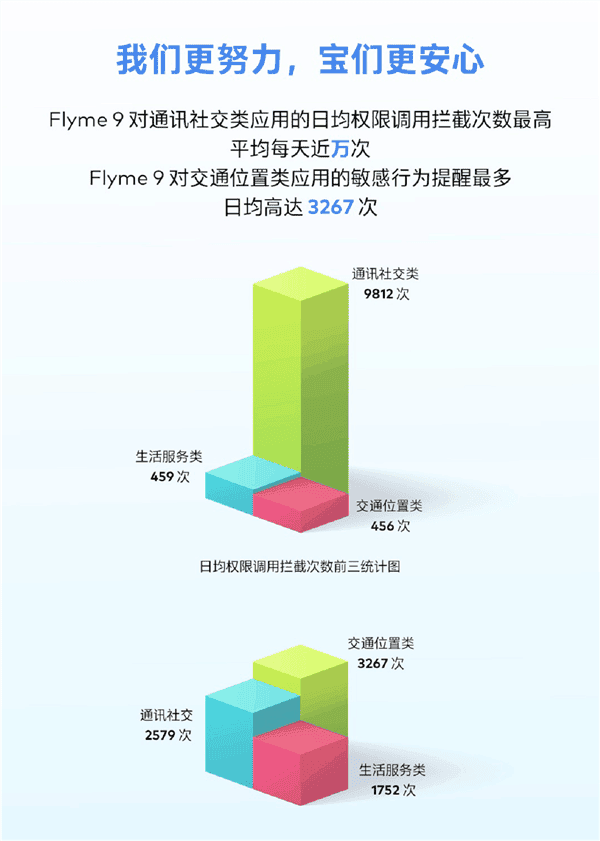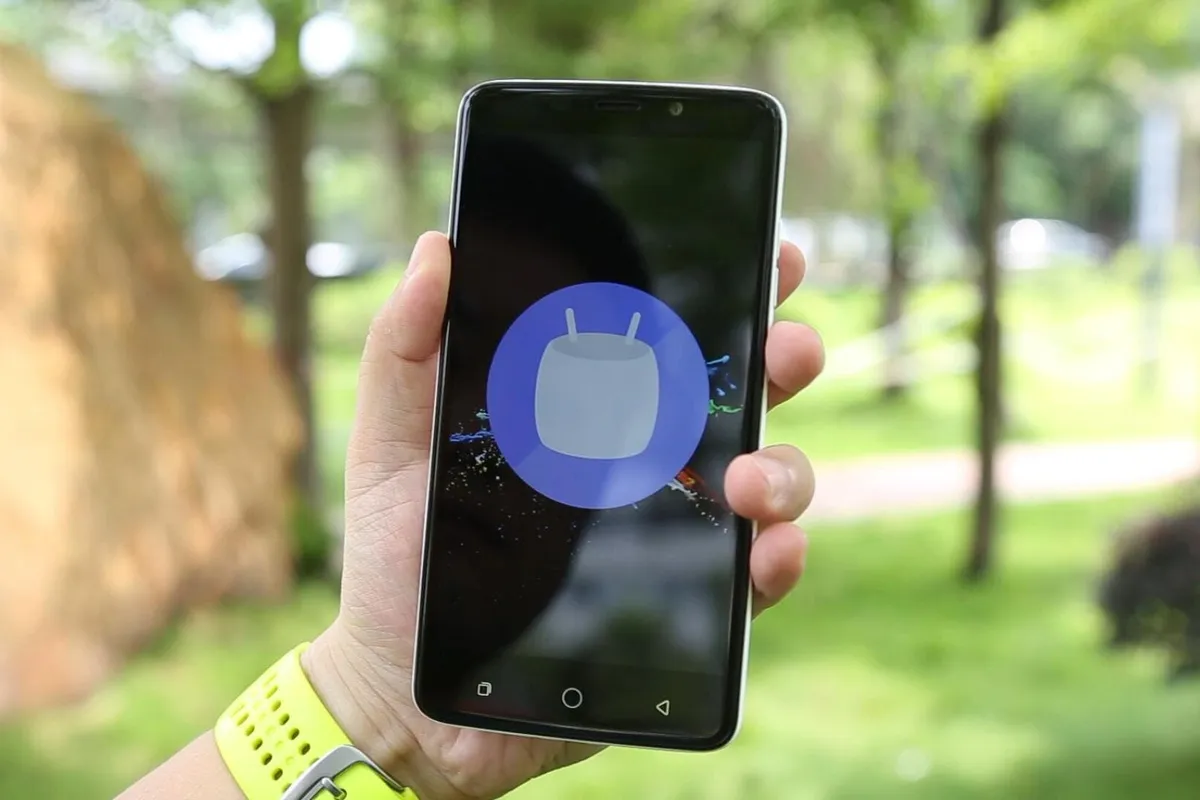In the smartphone era, one of the major issues that users have to fight against is the safety of personal information. Many of the applications that we need in our smartphones are conduits for sieving users' personal information. Yesterday, Meizu had released a document on "Privacy Security". The White Paper reviews apps access to user data, privacy utilization risks, and Flyme 9 privacy protection. The company also launched a detailed and comprehensive "security investigation".

According to Meizu, in less than one month, Flyme will consistently access the behaviour of applications in the system. The FlymeOS focuses on the app's access to the internal memory, clipboard, and address book. Furthermore, FlymeOS has revealed that 98% of apps access phone location data.

Nowadays, most of our Internet behaviors are digitized and recorded in the cloud around the clock. Applications will use the behavior data they obtain and even privacy data and AI for cloud analysis. This data is very vital for precise marketing with respect to the results of the analysis. With this information, the app will accurately predict the usage behaviour of the user.
FlymeOS intercepts suspicious applications
Some unscrupulous companies will steal user privacy information through applications. They use this information to perform AI cloud analysis and build their own user database. They then resell this user information to third-party buyers. This is why when we browse about a product, the next minute, an ad for that item appears on our news feed.

Therefore, as the relevant laws and regulations are still being gradually improved, we must always be vigilant about our own privacy leakage risks. Meizu has established a comprehensive set of privacy protection for users through Flyme 9's four privacy weapons. The barrier makes personal privacy data a "forbidden area" that applications can hardly touch.
According to the company, Flyme 9's highest number of interceptions per device per day is as high as 14,280. This is about 16% higher than the average number of interceptions per day. The average number of sensitive behavior reminders per day on a single device is up to 14,224 times. This is also about 32% higher than the average number of sensitive behavior reminders per day on a single device.
After nine years of development, Flyme 9 has set a new benchmark for system privacy and security protections. These additions make the system function smooth and safe. Meizu claims that in the future, Flyme will always put the user experience first. The company also promises to always provide consumers with a better system security experience.






Place comments
0 Comments
You are currently seeing only the comments you are notified about, if you want to see all comments from this post, click the button below.
Show all comments